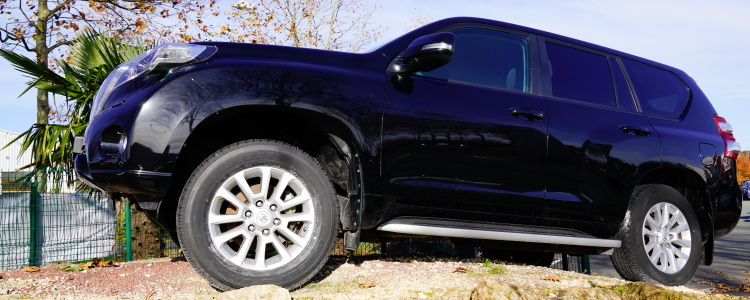A press release from Toyota this morning announced that the Prius had just surpassed the one million mark in world wide sales. This begs the question, “would the Prius be a good car for a bad credit car loan?”
It's all about the gas mileage
With gasoline crossing the $4.00 per gallon barrier in the Detroit metro area, those of us at Auto Credit Express thought it might be a good idea to take a look at both the Prius and the Civic hybrid to see how they might work with a subprime car loan.
Both vehicles offer excellent gas mileage. The Prius, with its parallel hybrid system, can actually be drive around town in electric-only mode, as long as you keep your speed under 30 miles per hour. The Civic Hybrid uses its electric motor as an assist for acceleration and relies on a small, extremely efficient, 1.3 liter engine for much of its fuel savings, although the electric motor can power the vehicle during many cruising situations.
The Advantages
The obvious advantage of both vehicles is gas mileage. The Prius, classified as a midsize car, delivers fuel economy of 48 mpg city and 45 mpg highway. The Civic Hybrid, a compact car, delivers 40 mpg city and 45 mpg highway. Both vehicles are highly rated by Consumer Reports and both have a 10 year hybrid drivetrain warranty that includes the battery pack. Being hybrids, neither car needs to be plugged in to an external source of electricity to be recharged and because they also come with gasoline engines, neither one has a limit on driving range.
The Disadvantages
At this point in their development, hybrid vehicles also have a number of disadvantages. Both the Honda and the Toyota are more expensive than their gas-only counterparts. The Prius has no direct competitor in the Toyota lineup, but the Civic Hybrid can easily be compared to its gas-only siblings. The nearest model, option-wise, to the hybrid would be the Civic EX. While the EX has a sunroof and the hybrid does not, the hybrid has climate control, while the EX makes do with a manual air conditioner. The difference in price: the EX sells for $20,145, while the hybrid has an MSRP of $23,235 – a difference of $3,090. To go a step further, if you want to lose the alloy wheels and sunroof (along with 4 wheel disc brakes – the hybrid is a disc/drum setup), the Civic LX lists for $18,395 – a difference of $4,840. Both the EX and the LX offer a substantial savings in initial cost over the hybrid.
Not only is the initial selling price higher, but it will take some time to recoup the savings in fuel costs. Consider this: if you drive 15,000 miles per year and gas is selling for $4.00 per gallon, it would take you 5½ years to make up the difference in price when compared to the EX and 8 ½ years to make up the difference with the LX. At $5.00 per gallon, it would still take over 4 years versus the LX.
Buying a used hybrid doesn't give you much of a break, either. While much of the used car market is soft, sales of used hybrids are booming. A quick glance at various used car sites shows a 2004 Prius with average miles selling for $18K-$19K (new retail was $23K-$25K). A 2004 Civic Hybrid is a little more affordable at about $15,000, but even this is $2,000-$3,000 more than a comparable LX.
Taking a look at how this would affect your monthly payment, a new hybrid, such as the Prius, sells for about $26,000, while the Civic is about $3,000 less. With 10% down, a 5 year loan on the Prius would fall in the mid $500 to $600 range and possibly more, depending on the interest rate. The Civic would have a payment of about $500 - $550. A used Civic Hybrid, if you can find one (they're not nearly as plentiful as used Priuses), would have a payment of $100-$150 more per month than a used Civic LX.
The Bottom Line
While there are advantages to driving a hybrid, those of us at Auto Credit Express have always felt that the objective of a bad credit car loan was to reestablish your credit, not get the car of your dreams. While a hybrid car is great for the environment, the associated high payments – especially for a new one – could really stretch your budget. Any savings that you get at the pump would be more than offset by higher monthly payments as well as increased insurance costs.
For more information on bad credit car loans, visit our web site at www.autocreditexpress.com. Remember, we want you “on the road” to better credit.















